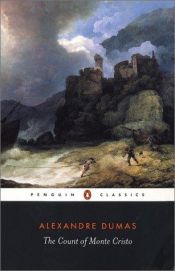Граф Монте Кристо
Blurb
„Граф Монте Кристо“ е псевдоним на главния герой от едноименния роман на френския писател-романист Александър Дюма-баща. Творбата е завършена през 1844 година.„Граф Монте Кристо” е приключенски роман от Александър Дюма. Често се смята, че трябва да се нарежда заедно с Тримата мускетари, най – популярната творба на Дюма. Той завършва творбата през 1844 г. Както много от новелите му, тя е разширение на сюжета, предложен от сътрудничеството му с Огюст Маке.
Действието се развива във Франция, Италия, острови в Средиземно море и Ливан, по време на историческите събития от 1815 – 1838 година. Историческата рамка е основен елемент от книгата. Приключенска история, главно ангажирана с темите за надеждата, справедливостта, възмездието, милостта, прошката. Фокусира се на човек, който е несправедливо хвърлен в затвора, бяга, натрупва състояние и се подготвя да отмъсти на тези, които са отговорни за задържането му. Но плановете му имат опустошителни последствия, както за виновните, така и за невинните.
Главен герой на романа е Едмон Дантес, деветнадесетгодишен моряк и капитан на търговския кораб „Фараон“. Влюбен в красивата каталанка Мерседес, която споделя чувствата му.

 English
English Español
Español Deutsch
Deutsch










Member Reviews Write your own review
Alexandru.chereches
Inca o carte ce ne releva natura intunecata a umanitatii si a legilor umane.
Be the first person to review
Sciamatic
One the early adventure novels, 'Monte Cristo' shows its age. While a classic that should be read to understand the beginnings of a now popular genre, the book still suffers from what any progenitor suffers from: a lack of polish. The book contains an abundance of "As you know, Bob..." dialogue, in which two characters who are well familiar with a fact must still discuss it among themselves to let the audience in; or, alternately, dialogue in which the characters speak entirely unnaturally to assuage the audience of their perceptions. For example, the Count is lying about his age. We, the audience, know that. The characters he's deceiving, obviously don't. Rather than simple answer simply, when asked his age, the Count goes through verbal gymnastics to convince a character who has no reason to think he's lying that he isn't lying, because Dumas wants the audience to know that he's thought this all out. It's one of those things that you have to take into account when reading early versions of genre tales -- that the tropes and cliches weren't tropes and cliches yet, and no one knew, or even thought, to avoid them. To me, this makes 'The Count of Monte Cristo' a must read for people wanting to experience the evolution of novel-style story telling, but I don't think this necessarily removes my critique of the writing. While the cliches weren't cliches yet, that doesn't absolve the author of certain crimes. After all, surely Dumas was aware of how people spoke to one another, yet often his characters more woodenly go through puppet plays for his own delight than speaking in any kind of organic manner. In short, I'm very glad to have read this book, and would recommend it to lover's of books, but it is still a bit of a trial to get through, and lacks the charm of other books of the same era.
Be the first person to review
Paula
Genialer Klassiker
Be the first person to review
Pwtierney
Dumas weaves an incredible story. It isn't difficult or especially deep reading; it is a fun, and exciting adventure story meant to entertain more than enlighten. That said, it is done incredibly well, and I'd recommend it for anyone interested in the classical "canon" of adventure novels.
Be the first person to review
Mandavi
Durchaus spannende Geschichte über die großen und reinen Gefühle. Andererseits doch sehr schwarz -weiß und irgendwie recht vorhersehbar, was mich aber nicht vom Mitfiebern abhalten konnte. Und das, nahezu über den ganzen, doch recht beachtlichen Wälzer ;)
Be the first person to review